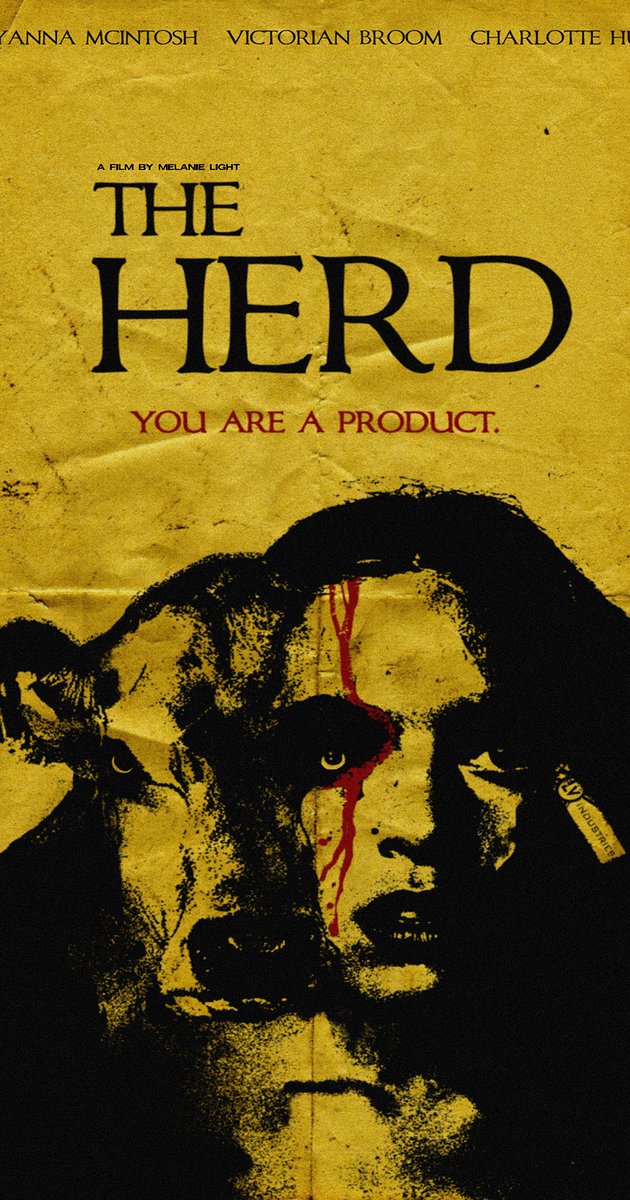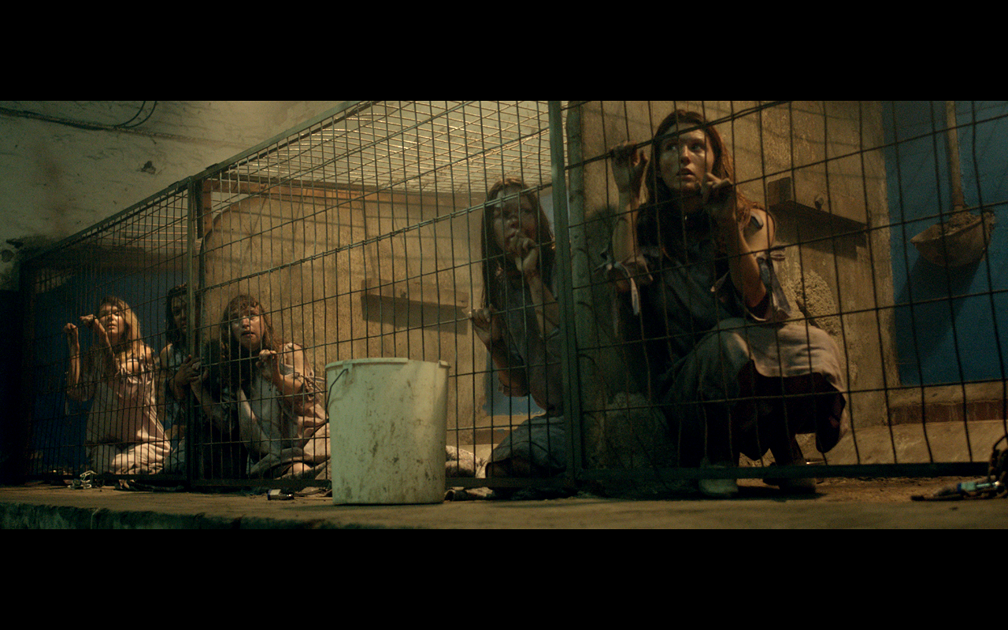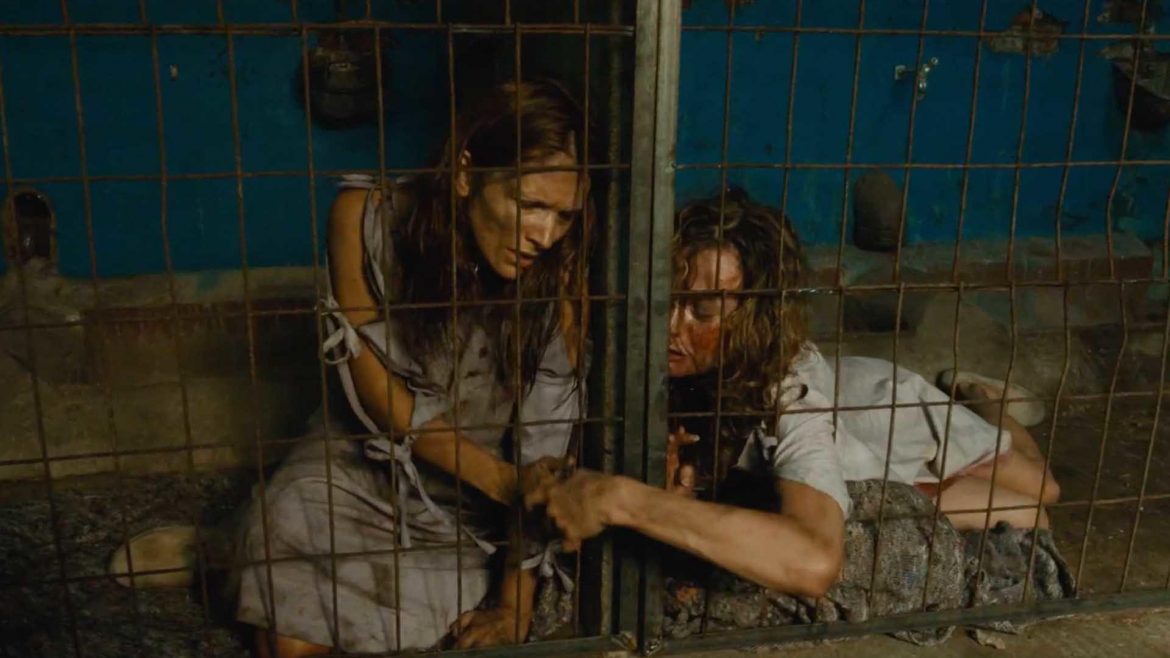Many horror and sci-fi films play with themes drawn from our treatment of nonhuman animals and the natural world. From the Night of the Living Dead to the Texas Chainsaw Massacre movies, and on through pure exploitation and extreme cinema, the subtexts are often hard to miss — a focus on vulnerability, powerlessness, instrumental use. Melanie Light’s The Herd (2016), on the other hand, dispenses with the subtext altogether, delivering a 20-minute shocker that explicitly doubles as a piece of animal advocacy.
This is both a credit to the commitment of its creators and something of a knock against the film itself. As I’ve argued, part of horror’s power in this regard is the often oblique, askew approach. The Herd is indeed an eco-feminist take on captivity and exploitation, with some anti-capitalist underpinnings, but something seems lost amid all the brute force of metaphor.

Like The Herd, The Texas Chainsaw Massacre lends itself to an animal rights reading through analogy and by emphasizing what theorist Carol Adams, borrowing from linguistics, has called “the absent referent”. But it managed to do so without a coda of actual slaughterhouse footage in case we missed the point.
Still, Light’s film is just as upsetting as it means to be. We open on a cringe-inducing body horror sequence of forced artificial insemination, then move on to squalid basement cells filled with dirt-encrusted human women and take a stroll through a nightmare of dairy-like milking stations. It’s the torture-farm of Hostel made explicitly to evoke the treatment of nonhumans, and it’s every bit as horrifying as it sounds.
Light might stage these metaphorical terrors with a heavy hand, but her direction is accomplished. The murky rooms are framed with light from outside that filters through when doors open, and the sound design is an appropriate aural representation of hell.
When one of the caged women gives birth, she smiles with delight upon being told that it’s a boy; of course, in a dairy, that’s a death sentence, and the human infant is promptly tossed into a trashcan while she watches.
If this sounds tough to take, that’s because it is. Light and her cohorts’ ambition is to literalize the suffering of farmed animals, and its monstrous absurdity. In this facility, the end-product is a facial cream for the more affluent, imbued with “nature’s finest ingredients.”
 This class-based touch is an intriguing addition to the anti-patriarchy and, were The Herd longer than 20 minutes, perhaps it would’ve figured more prominently. We never really learn who these women are or how the system works, apart from its reliance on institutional cruelty and bureaucratic indifference. As a feature, maybe Light could expand on the themes.
This class-based touch is an intriguing addition to the anti-patriarchy and, were The Herd longer than 20 minutes, perhaps it would’ve figured more prominently. We never really learn who these women are or how the system works, apart from its reliance on institutional cruelty and bureaucratic indifference. As a feature, maybe Light could expand on the themes.
As it stands, The Herd is an intentionally shocking punch in the gut, an exercise in mondo transgression with a revenge narrative exploitation fans will enjoy. But I suspect it’s of limited appeal outside of vegan and extreme horror circles. The film hopes to change minds through brute force, but it’s hard to imagine it succeeding at that. If anything, its on-the-nose substitution of human for nonhuman grief and terror seems likelier to drive audiences away.
Of course, for all its subtextual subtlety and remarkable near-bloodlessness, The Texas Chainsaw Massacre isn’t exactly a mainstream lark, either, so maybe that’s a distinction without a difference. But if Light could expand The Herd‘s analogy and provide some measure of character development, maybe it would make the kind of difference the filmmakers envision.

